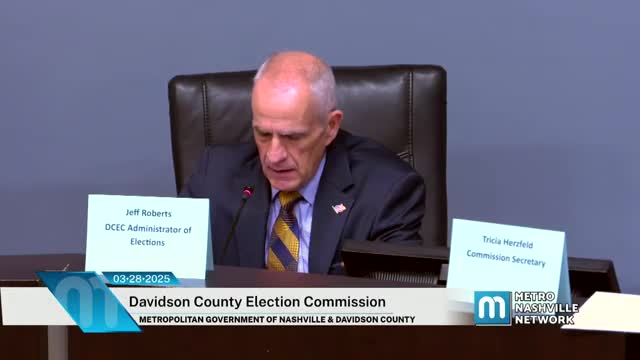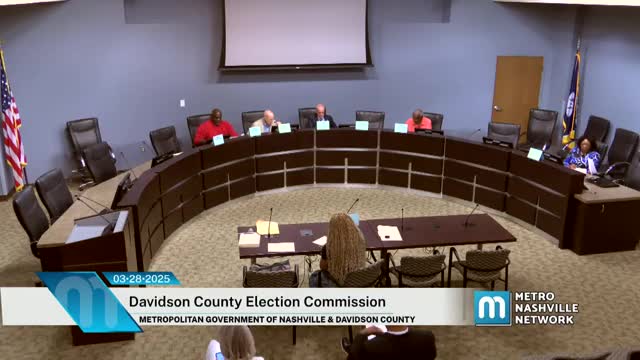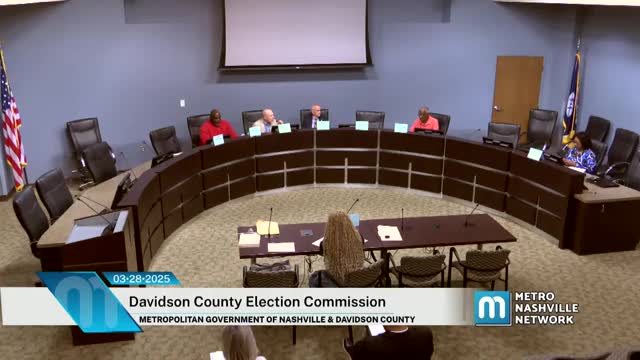Article not found
This article is no longer available. But don't worry—we've gathered other articles that discuss the same topic.

Administrator of Elections reports voter-roll cleanup, NCOA matches and pending citizenship removals

Election staff recommend 1281 Airways Park site for relocation; General Services outlines buildout timeline and security needs

